Disclaimer: The Eqbal Ahmad Centre for Public Education (EACPE) encourages critical and independent thinking and believes in a free expression of one’s opinion. However, the views expressed in contributed articles are solely those of their respective authors and do not necessarily reflect the position or policy of the EACPE.
It was 1983 when last student union elections were held in universities and colleges across Pakistan and on the eve of 1984 student union elections, the ruling junta of contemporary times banned them. Zia-ul-Haq collected the reports that anti-government student unions will sweep elections and fear of losing the rule as Ayub Khan had lost, compelled him to sign the charter of erasing student unions. These unions will create law and order situation, was widely cashed pretext that led to their ban.
Different student unions throughout the history of Pakistan acted as catalyst and played an admirable role in various issues of important nature. When Pakistan came into being, the only well organized student organization was Muslim Student Federation (MSF) that met its demise in 1950 after ending up in fragmentation.
In 1950, the charge of this responsibility was then taken up by Democratic Students Federation (DSF) which afterwards evolved as a strong and dedicated left wing student organization. In turn, in 1954, ban was imposed on Communist Party of Pakistan (CPP) as well as on Democratic Students Federation (DSF).
To counter the leftist sentiments on the campuses, government launched a pro-government student organization under the title of National Students Foundation (NSF), a platform for former MSF members and conservatives. For the amazement of few, NSF too turned the table in favor of leftist ideologies. In 1958, Ayub Khan in wake of left leaning orientation imposed the ban on political parties in general and NSF in particular. The ban was partially lifted in 1960.
The new decade saw the rise of Islami Jamiat Taleba (IJT), a right wing student organization which had secured the patronage of Jamat-i-Islami (JI). Almost for a decade IJT was overshadowed by DSF and NSF but later on it emerged as a bitter rival of NSF. In wake of Tashkant Agreement, Bhutto resigned from Ayub’s cabinet and he became a darling of the NSF.
Leftists at Punjab University (PU) formed National Students Organization (NSO) for restoration of student unions in PU. NSO soon became enough powerful in Lahore that it started giving continuous jerks to Ayub’s regime. Late 1960’s is the golden era of student politics during the movement against Ayub Khan.
Student union is the nursery of democracy. Serving in student union develops a sense of responsibility among students which gets extended when they enter in political arena.
1970’s is termed as the most democratic period in the history of student politics as government promoted and patronized student unions and passed ‘1974 Student Union Ordinance’. The ordinance appreciated and encouraged political activities on campuses. It is the same period when IJT finally rose as powerful electoral force.
Peoples Student Federation (PSF), a student wing of Pakistan People’s Party (PPP), in 1972 started to involve in mainstream campus politics. To lessen its dependence on NSF, PPP introduced PSF.
The Liberal Students Organization (LSO) at KU, Sindh National Students Federation (SNSF), Jeeay Sindh Students Federation (JSSF), Anjuman-e-Taleba-e-Islam (ATI), Baloch Students Organization (BSO) and Punjabi Students Association (PSA) were other student unions that also played their role in response to particular issues.
During the general election of 1977, NSF as well as its factions withdrew its support for Bhutto. When Bhutto leaned away from its socialist policies and gave green signal to pass 1974 anti-Ahmadiyya bill, NSF found it reasonable to quit its support in near future. The only progressive student organization that served PPP’s cause well was PSF.
When Bhutto’s handpicked Chief of Army Staff, General Zia-ul-Haq imposed martial law, Punjab Progressive Students Alliance (PPSA) at PU, Gordon College and at the newly built Quaid-e-Azam University in Islamabad resorted to demonstrations against him.
Among all these developments, All Pakistan Mohajir Students Organization (APMSO) is one that cannot be negated. APMSO also claimed itself to be the one with progressive tilt and worked for uplifting Urdu speaking students who were fallen prey to Bhutto’s quota system.
During Afghan War, the high amount of weaponry inflow in Pakistan made it easy to acquire them at very low cost. IJT introduced arms in student politics while PSF made its first use.
When IJT started violence against NSF and PSF, United Students Movement (USM), a progressive setup, then came on campus landscape. Taliba Jamhoori Mahaz (TJM) was the creation of minds in NSF and PSF that supported USM in student union elections of 1981. It was during this election that IJT murdered a member of USM. By now all major student organizations were well armed with lethal weapons. IJT was a step ahead as it had rocket launchers as well.
Movement for the Restoration of Democracy (MRD) was also on its way backed by PPP’s anti-Zia alliance. Zia-ul-Haq, fearful of losing his chair, sought help from his advisors. As progressive student unions were already involved in anti-Zia campaign and activities, Zia’s mind clicked for their ban and thought it to be the only option left.
IJT was going through the trauma as it was losing its power in universities and colleges, thus of no use for Zia.
The ban on student organizations brought all of the student organizations to one platform and they launched protests against Zia. IJT now started acting without considering any direction from JI, an alarm bell both for Zia and JI. JI at any cost cannot afford to annoy IJT, thus it withdrew open support of Zia regime. On the other hand, Zia gave IJT free hands to operate within universities and colleges. In the wake of this, IJT withdrew from protests against Zia’s ban of student unions.
Student union is the nursery of democracy. Serving in student union develops a sense of responsibility among students which gets extended when they enter in political arena. This is how student unions create difference. Those involved in union activities take care of needs of students from water, bus services, and quality food in cafes to scheduling fee at campus. This training throughout their lives pushes them for sensible and rational decisions.
After the imposition of ban on student unions, an amazing discourse was generated that how unions disturb the academic activities at campuses. Even this question came under talk in so-called intellectual circles. A study by Nadeem Farooq Paracha has shown that during the peak days of student union in 70’s, there was less violence witnessed in educational institutes. Likely those who served in executive councils of different unions were competent and talented students, also in their studies. Portraying them as the gathering of goons is not less than a crime committed against student unions.
Student unions in Pakistan used to act as the jumping pad for democracy and democratic values.
During the days of student unions, the fate of students were designed by institute’s syndicate in their presence, thus they were familiar with what was going on. Is it not miserable for students that they have been made voiceless? They are denied of their say in the issues of utmost importance that directly or indirectly affect them. It is none other than snatching one of their basic democratic rights.
Furthermore, check the irony of national level politics in Pakistan during the period of three and a half decades after ban. On one hand it has strengthened demonic dynastic politics, while on the other hand Pakistan has faced failure to produce sensible leadership from middle and lower-middle class. The competency and talent in middle and lower-middle class die their own death when find no room to flourish and excel.
Student unions in Pakistan used to act as the jumping pad for democracy and democratic values. These unions also played their role in touching the nerves of Ayub Khan which compelled him to resign in 1969. This is one such example. Throughout the history of Pakistan these unions have influenced the national level politics positively, thus executives at different levels had to consider their opinion before shaking the legs. One can observe with the naked eye how without student unions the state apparatus has become the horse without reins.
If the smoothly working established democracies are analyzed, one will find that the leadership these democracies are entertaining comes from student unions as well. The educational institutions, there, are the industries which provide finished products in form of brilliant and mature leadership. If there was no ban imposed on student unions about a few decades ago, imagine how cool the political landscape of Pakistan would have prevailed in current times. Universities and colleges should be given free hands to establish student unions and it is possible only when the ban is lifted and all at once without any preconditions. It will not only strengthen democracy but it will also pave the way for evolution of democratic culture across length and breadth of the country.
The issues and harsh conditions from which the students go through during their years at educational institutes can never be best understood other than themselves. The time once again has come to give them voice, they only way to redress their grievances.
Will it not be better that the burden on administration at campus will be shared by a huge workforce on one hand, while the country will taste its fruit in the long run on other hand. One of the factors behind fallout of students from their respective educational institutes is the financial constraints being faced by them. The day to day increasing dues back at institutes also compel the new entrants to think hundred times before seeking the admission. Is it not a sort of atrocity that they have no say in financial and administrative policies of universities and colleges which are being designed particularly for them? As the student unions represent the students, these should be provided with chair in syndicate at campus without any second thought.
For all these reasons, the ban on student unions should immediately be lifted and they must be provided with smooth grounds to flourish and excel on its own.
About the Author:
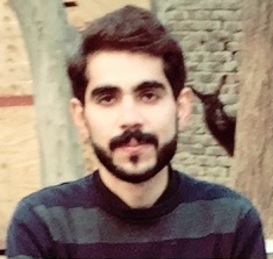
Haider Nisar Sawati is M.Phil student in National Institute of Pakistan Studies (NIPS), Quaid-e-Azam University (QAU), Islamabad. He also serves as Assistant Editor for Gandhara Journal of Research in Social Sciences (GJRSS).
He can be accessed at haider.n911@gmail.com


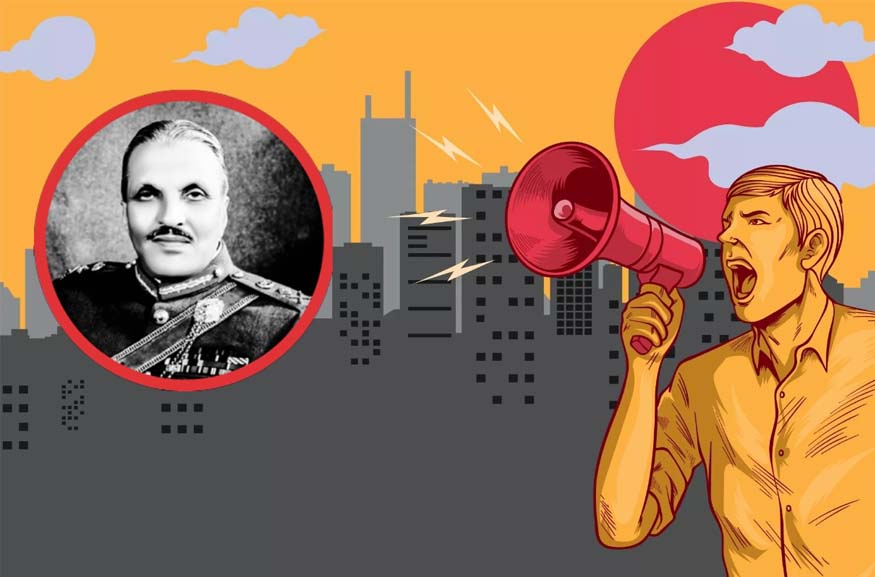

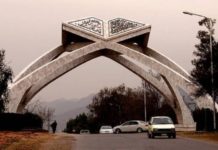

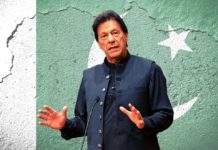
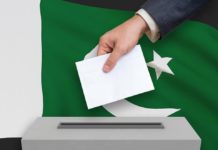
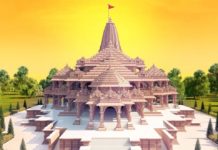


Nice article. Student unions are breeding ground for future politicians, but they should work, only,for the betterment of students without crossing their limits.
Thanks for appreciation!
Would you like to please identify the ‘limits’?
Very well. Congrats on articulating such ideas on Student Union politics in Pakistan